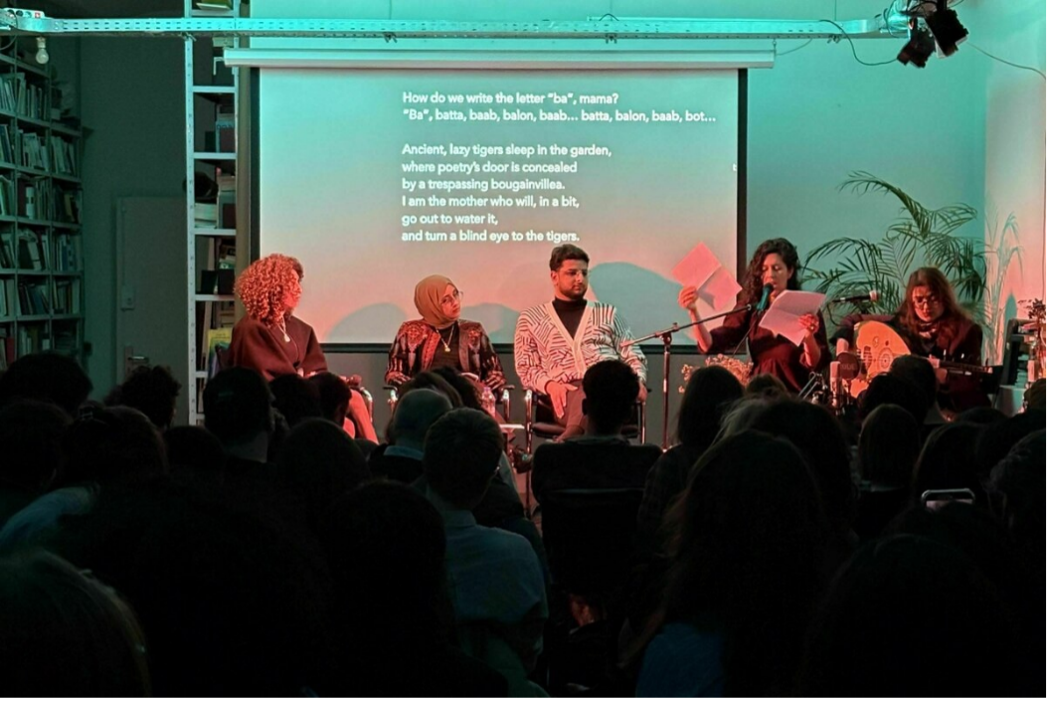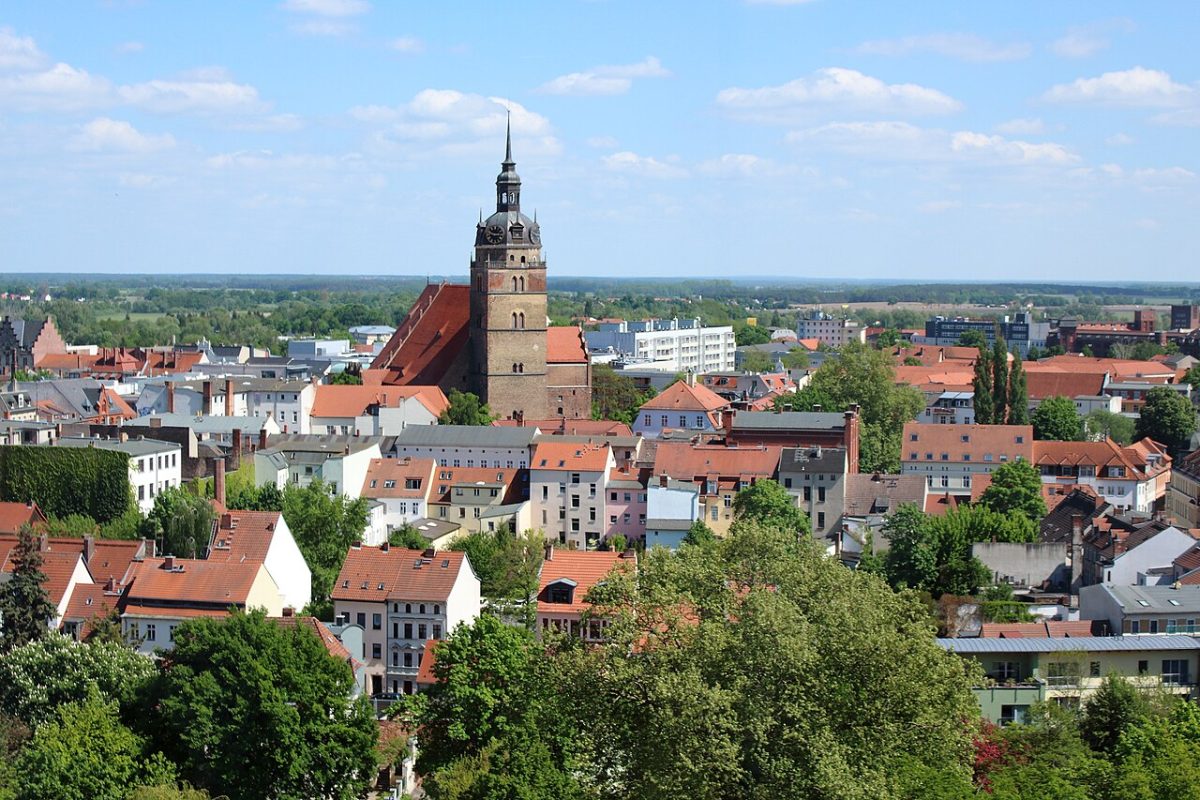Translation of the original article „Ein AfD-Verbot bekämpft ein Symptom, aber keine Ursache” by Sebastian Friedrich. Translated by Ciara Bowen.
Since the party’s founding, the left have debated how best to handle Alternative für Deutschland (Alternative for Germany, AfD), the first party to have successfully gained ground with the more right-leaning faction of the so-called “Union” of the Christlich Demokratische Union Deutschlands (Christian Democratic Union of Germany, CDU) and the Christlich-Soziale Union in Bayern (Christian Social Union of Bavaria, CSU). Neither broad or narrow coalitions against the right, blockades, discussion or lack thereof, Alexander Gauland having his clothes stolen, or East German identity politics have caused the AfD any lasting harm. In fact, current opinion polls show that between 23% and 25% of the public support them—they have continued to see substantial growth since their record result in the parliamentary elections.
Given the current circumstances, another strategy is clearly needed. Over the last two years, both left-wing and liberal circles have discussed a potential AfD ban. At their latest party conference, the Sozialdemokratische Partei Deutschlands (Social Democratic Party of Germany, SPD) voted to begin laying the foundations for a ban—and once the Bundesverfassungsschutz (German domestic intelligence service, BfV) officially updates its classification of the AfD, legally recognising it as “definitely right-wing extremist”, the call for a ban will likely gain significant traction.
There are good reasons for the ban—the AfD has become drastically more right-wing since its founding. Political actors such as Björn Höcke in Thuringia, Hans-Christoph Berndt in Brandenburg or Matthias Helferich in Dortmund, as well as AfD-affiliated thinkers like Götz Kubitschek or Benedikt Kaiser, want more than just a marginally more right-wing, neoliberal version of the establishment. They seek a state and a society which is fundamentally different, authoritarian, unequal, and fulfilling the ethno-nationalistic fantasies of complete ethno-cultural homogeneity. The shadow of Nazi rule leads many to think that it is better to prematurely use every preventative method at our disposal, before it is too late.
The debate rages on. From a leftist perspective, is banning the party a sensible demand? And, anticipating the question: a clear yes seems just as impossible as a clear no.
Could a ban actually work?
The first question is whether the AfD is a party that could indeed be banned. For many on the left, this goes without saying—for them, the AfD has long been Björn Höcke’s party at its core, dominated by right-wing radicals and even Neo-Nazis. However, characterising the AfD as such does not take internal opposition into account. While the AfD has undoubtedly radicalised and is especially extreme in comparison to other right-wing parties in Europe, there are those in the party who, despite this, see the party as continuing in the tradition of the national conservative wing of the old Union.
Shifting towards the centre-right has been disparaged within the AfD as “Melonisation” (referencing Giorgia Meloni), but in recent months, talking points which had previously divided the fascist strand from the parliament-oriented wing have seen a certain convergence towards the centre. For instance, pro-Russia voices are quieter, while pro-West forces and those who emphasise a strong Europe are gaining influence. There are also indications that people such as Maximilian Krah, member of the Bundestag, are distancing themselves from openly völkisch (ethno-nationalist) thinking. These developments, and the subsequent debates amongst the party and its supporters, are a direct result of calls to ban the party, as well as its imminent classification by the BfV as “definitely right-wing extremist”.
On the one hand, it could be assumed that debating a ban would, in itself, cause the party sufficient unease. On the other hand, we must consider that even the most recent attempts to soften the party’s image, by Krah or by party leaders, would be taken into account in the assessment by the Bundesverssaungsgerichts (Federal Constitutional Court, BverfG) — and it is this body who would decide whether or not to ban the party. The louder the voices of Krah and his ilk, the stronger the legal argument that the AfD is not an entirely ethno-nationalist party, grows.
“Defensive democracy, which will be leveraged in the fight against the AfD, is based on extremism theory. (…) Formally, these rules target “all extremists”, not just those on the right.”
Even without this political shift to the centre, it is doubtful whether there would be conclusive proof of the AfD being unconstitutional. In their manifesto the party hardly strays from the Freie Demokratische Partei (Free Democratic Party, FDP) or the right-wing margins of the Union in their stances on sociopolitical issues, economical issues or immigration. Lawyers disagree about how the proceedings will play out, but those in favour must ask themselves, what would happen if the AfD survived the attempt to ban their party?
In this case, they would be confirmed as being constitutional, which would amount to political acquittal. This would have serious consequences. In the Union there have long been certain voices, mostly from eastern German national associations, urging for cooperation with the AfD, or at least encouraging the normalisation of dealing with the party. The dividing lines run less along substantive than formal differences. As long as the AfD is considered unconstitutional, cooperation with the “state-supporting” Union parties is practically unthinkable. A ruling by the Bundesverfassungsgerichts in favour of the AfD could change that in an instant, making such a collaboration only a matter of time. The parliamentary normalisation of the AfD would happen virtually overnight.
However, even if the ban is successful, the question remains as to how sustainable the fight against socially entrenched right-wing extremism really is. Alternative für Deutschland answers a call that began before they were founded. Studies vary, but social, political and educational sciences have assumed for decades that between a fifth and a quarter of the population hold firmly radical right-wing opinions.
The strongest argument in favour of a ban is that it would severely disrupt the organised far-right’s formation process. After years of internal conflict and painstaking network building, a new political project would have to be established—but it runs the risk of simply being banned once again.
However, historical examples show that banning a political party rarely works in the long-term. Twelve years after the ban of the Sozialistischen Reichspartei (Socialist Reich Party, SRP), the unmistakable reincarnation of the Nazi party, the Nationaldemokratische Partei Deutschlands (NPD) was formed. Similarly, twelve years after the Kommunistische Partei Deutschlands (Communist Party of Germany, KPD) was banned, came the Deutsche Kommunistische Partei (German Communist Party, DKP). Nowadays, thanks to more efficient means of communication, parties would be reformed even sooner.
A ban would indeed set the process back, but would likely not stop it completely. In Bremen in 2023, it became apparent just how fast this shift can happen—because the AfD were not allowed to run, the Bürger in Wut (Citizens in Rage) party reached almost 10% of the vote. Also Bündnis Deutschland (Alliance Germany), WerteUnion (Values Union) or Wir Bürger (We Citizens) are also on standby to fill the gap left by the AfD.
Beware of state anti-fascism
Additionally, a successful ban would be the most radical disruption of our so-called defensive democracy in its history. Leftists have historically been outspoken critics of the repression that accompanies state militancy, such as bans, surveillance by intelligence services and intimidation. This is for good reason—not least because during the Cold War, Neo-Nazis and communists alike were equally considered ‘enemies of the constitution’. Such fundamental criticism of concepts like ‘defensive democracy’, ‘enemy of the constitution’ and ‘defense of the constitution’ has become much quieter in recent years.
This comes at a time when the much-invoked sharp sword of party banning finds a target with a much larger voter base than the SRP or the KPD had in the 1950s. Also notable is that more people are against a ban than in favour of it: a majority of the population, 52% according to a current poll by the Allensbach Institute, oppose a ban, while only 27% are supportive. Were the AfD to be banned, there is a risk that democracy would change overnight: the Damocles’ sword of party prohibition would hang over all who did not unequivocally support the status quo, and leftists forces who want to defeat capitalism could be more intensely scrutinised. The question of how much critique of the system is allowed would have a greater impact on political practice than it does today, for the right as well as the left.
“(…) we know now that the KPD ban in 1956 served to legitimise the banning of the SRP.”
Yet this is not just an abstract threat—an AfD ban could also be used symbolically to ramp up repression of the radical left. Calls to ban “Antifa” stem not just from the AfD, but from the Union parties as well. Of course, there is no national German Antifa organisation, but rather symbols, local groups and networks, that a Bundesinnenminister (Federal Minister of the Interior) could outlaw. In the past, a ban of the Rote Hilfe (Red Aid) was also discussed; by the same token, the scope for structures like Interventionistische Linke (Interventionist Left) could narrow drastically. A look back at history shows that such a scenario has not been plucked out of thin air: we know now that the KPD ban in 1956 served to legitimise the banning of the SRP.
This is also due to the internal logic of so-called state anti-fascism, that is often overlooked in leftist debate. Defensive democracy, which will be leveraged in the fight against the AfD, is based on extremism theory. This is reflected in regulations such as checks on civil servants’ allegiance to the constitution, or new rules for officials and state employees, as happened in Rheinland-Pflaz, where AfD members are now excluded from civil service positions. Formally, these rules target “all extremists”, not just those on the right. Therefore, the left could also be subject to the current tightening of restrictions. This is not a theoretical danger—rather, it is a reality, as proven by well-known instances of professional bans, such as the case of teaching student Lisa Poettinger in Bayern.
Some refer to the BVerfG’s ruling in the second NPD ban, which distilled the Freiheitliche Demokratische Grundordnung (the liberal democratic basic order, FDGO) of the German constitution into three core principles: democracy, rule of law and human dignity. Most leftists likely have no problem with this order, yet these concepts are malleable—could criticising capitalism or promoting a socialist society constitute an attack on this basic law?
Moreover, it remains unclear how the authorities will apply the new FDGO criteria. Even after the NPD ruling, leftists were still kept under surveillance; professional bans were still imposed; groups were still criminalised. Banning the AfD could reinforce this tendency. After all, what government wants to be accused of being “blind in the left eye”—that is, of downplaying or ignoring possible left-wing extremism?
Tackling the root of the problem
It is difficult to determine whether the left should support the commencement of ban proceedings. The pros and cons must be considered, but first and foremost it comes down to fundamental, strategic questions: is the AfD on the brink of power? Is there a threat of the party reintroducing a form of the Ermächtigungsgesetz, the Enabling Act of 1933, thereby undermining democracy? Is another authoritarian state the goal, and if so, is it realistic?
Last but not least, the discussion about the right way to handle the AfD eventually leads us to consider the point of attack: should the symptom, the AfD itself, be the focus, or should we instead prioritise the social, economic and political causes that enabled the rise of such a party? Although hardly anyone expects a ban alone to stop the right, the question of priority is crucial—is the left primarily fighting against what this society creates, or fighting for a society that no longer engenders right-wing ideologies?
Banning the party may alleviate the symptoms, but the cause remains: capitalism will be in crisis and the allure of authoritarianism will be heightened as long as there is no viable alternative. The practical, technical approach of banning the AfD, in order to set them back a few years, may seem tempting given the left’s weaknesses. However, those in favour of pursuing it must also consider the possible side effects of such a move.




